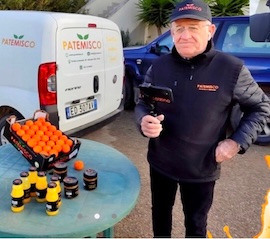 "Markets are currently unable to absorb the full volume of goods available. This is due to an imbalance in the relationship between the price of produce in rural areas and its subsequent retail prices. To illustrate this point, consider the example of a common clementine. At present, farmers are receiving 0.20 cents per kilogram for these fruits, yet they are subsequently selling them for over 2 euros per kilogram in large organised distribution centres," says Luciano Latorraca, the owner of Patemisco farm, an Italian company specialising in the production and processing of Navel-type clementines and blonde oranges.
"Markets are currently unable to absorb the full volume of goods available. This is due to an imbalance in the relationship between the price of produce in rural areas and its subsequent retail prices. To illustrate this point, consider the example of a common clementine. At present, farmers are receiving 0.20 cents per kilogram for these fruits, yet they are subsequently selling them for over 2 euros per kilogram in large organised distribution centres," says Luciano Latorraca, the owner of Patemisco farm, an Italian company specialising in the production and processing of Navel-type clementines and blonde oranges.
"In such a situation, many families find themselves unable to purchase fruit due to a widespread crisis that has led to a decline in demand and market activity. Farmers are also feeling demoralised. This poses a serious threat to the long-term viability and sustainability of this vital sector, which has historically served as a reliable source of income for numerous generations. The ongoing challenges we face could potentially result in a migration of resources towards more profitable and rewarding sectors."
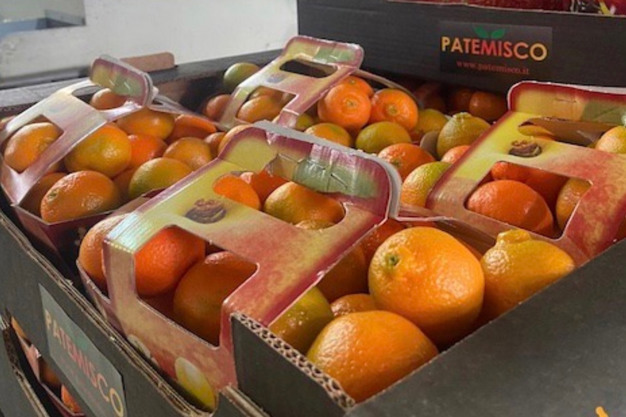
The marketing campaign is in full swing in Italy, where the harvest of Navel oranges has begun earlier than in recent seasons. Market demand is not as strong as for clementines, but it is better than in previous years.
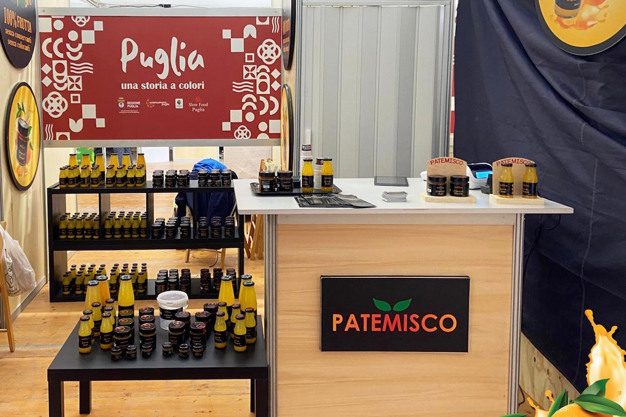
"The orange segment is less critical, as they have a stronger market position than clementines," explains Luciano Latorraca. "Due to market volatility, many producers are choosing to plant oranges instead of clementines. The sector as a whole is disorganised, with a lack of planning and an absence of an agricultural cadastre. This has resulted in new varieties being planted without a prior market study. To address this, it is crucial to establish a comprehensive land register that accurately maps the existing varieties and areas planted. This will enable producers to make informed decisions regarding the planting of crops aligning with market demand. This would allow producers to plan cultivation according to demand, avoiding overproduction and the subsequent financial risks that this can entail."
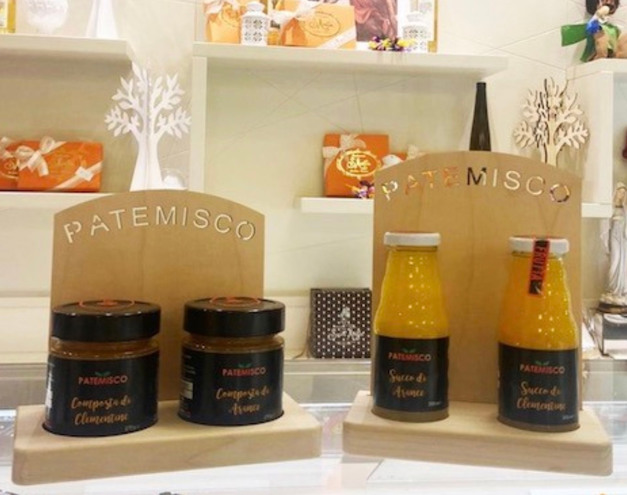
As a complement to the product range, unsuitable clementines are processed into two references: juice and compote. The stewed fruit is produced using natural methods, with a low sugar content and without the addition of thickeners or colouring agents. It is characterised by its high fruit content (75%), with the addition of sugar (25%) to ensure optimal flavour and texture.
Clementine juices under the Patemisco brand are in high demand as they are a market innovation compared to traditional citrus flavours. The fruit is harvested and processed to extract the juice, which is then filtered and pasteurised, ready to be packaged in 200ml bottles.
The company's distribution channels in Italy are many and varied, with fresh products sold to the general market and processed products available in specialised shops, bars and restaurants.
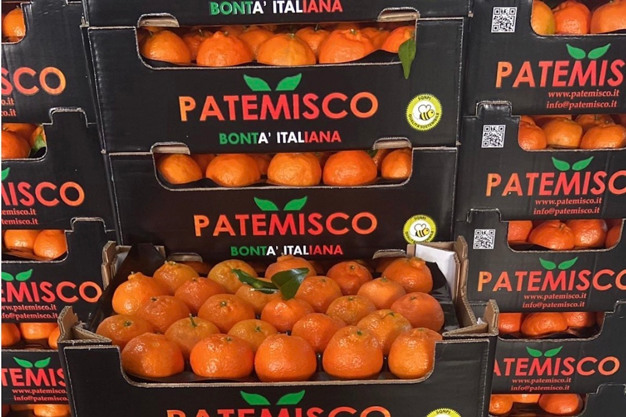
History of the company
Founded in 1965, Patemisco specialises in the production and marketing of Fukumoto, Navel and Navelate oranges and Clemenruby clementines. A production of around 700 tonnes of citrus fruit, grown on 80 hectares in the Apulian area of Massafra (TA). Part of the production has been renewed with the recent planting of more resistant varieties, including early and late varieties. One of the brand's innovations is to convert its entire production to organic farming by 2022, as organic production has proven to be economically viable over the years. In fact, with lower yields per hectare, they obtain higher prices.
For more information:
Azienda Agricola Patemisco
Luciano Latorraca
74016 Massafra (TA) - Italy
Tel.: +39 099 8855964
Tel.: +39 333 7670020
[email protected]
www.patemisco.i









